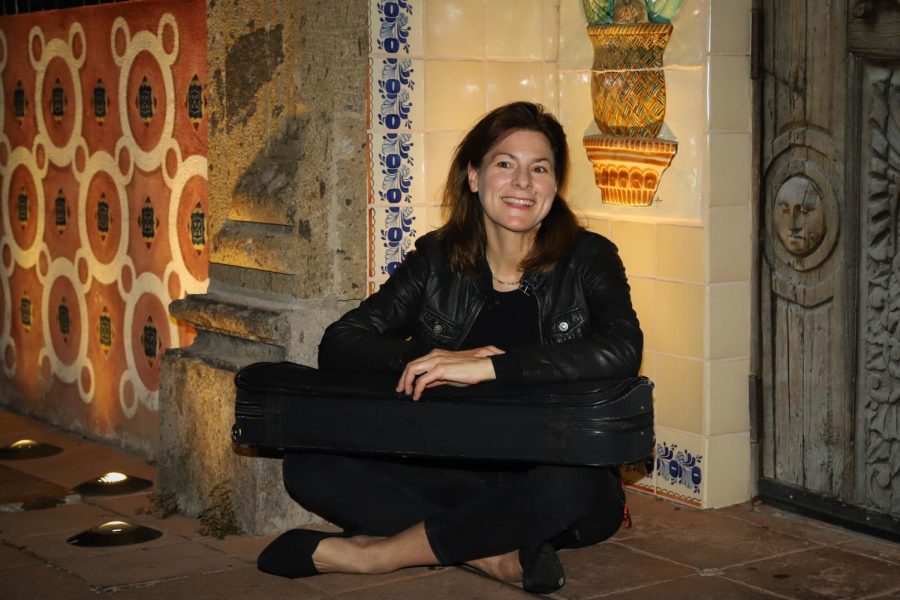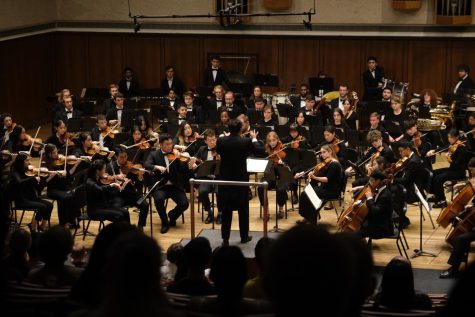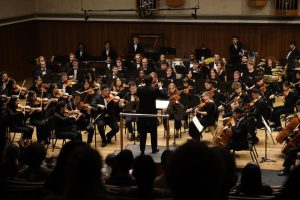Austin Symphony’s ‘Oktoberfest of Sound’ brings a new representation of Germany
November 1, 2022
In her performance, violinist Elisabeth Kufferath passionately breathed life into these historic pieces, as she played Dietrich’s Concerto in D Minor, Op. 30, continuing a family legacy of performing that piece.
Kufferath said her great, great grandfather performed as principal cellist during the concerto’s origins. She carries on his legacy, not only by joining a 200-year family line of musicians, but by fighting for this piece to debut in Austin.
“She is an advocate for this piece,” said Peter Bay, music director and conductor of the Austin Symphony Orchestra. “She knows it inside out.”
The “Oktoberfest of Sound” concert paid homage to the musical heritage of both Germany and the tradition of classical music. Kufferath, member of the Tetzlaff String Quartet and professor of violin at the Hochschule for Music, Theater and Media, joined the Austin Symphony for performances on Oct. 21 and 22. Bayselected pieces by Schumann, Dietrich and Brahms.
Bay said that American orchestras rarely perform Dietrich’s Concerto in D minor, and this is the Austin Symphony’s first time performing the piece. Bruce Williams, principal violist of the Austin Symphony, said he enjoyed being introduced to a new concerto and understanding its musical and historical relevance. He said he felt especially connected to the piece after hearing Kufferaths’ unique relationship with the concerto.
“It was fantastic to hear this beautiful piece that I had never heard before and the world really doesn’t know much about, but then to realize the connection that this guy had with Brahms and Schumann was just fantastic,” Williams said. “The family connection that Elizabeth had made the story even more incredible.”
Combining both chamber and solo orchestral music, Kufferath said the larger symphony instrumentations in “Oktoberfest of Sound” remain an indispensable part of the classical work and integral in telling the story of the music.
“I may have the main voice or the protagonist line, but it wouldn’t be nearly as interesting if it didn’t have a wonderful harmonic accompaniment or the energetic rhythm underneath,” Kufferath said.
Williams said Kufferath’s performance of a German composer’s concerto cultivated an inspiring showcase for both the symphony and the audience.
“It was a great weekend, not just because of this fantastic piece that featured the violin, but because of the historical connection that was just right there on stage with us,” Williams said.











